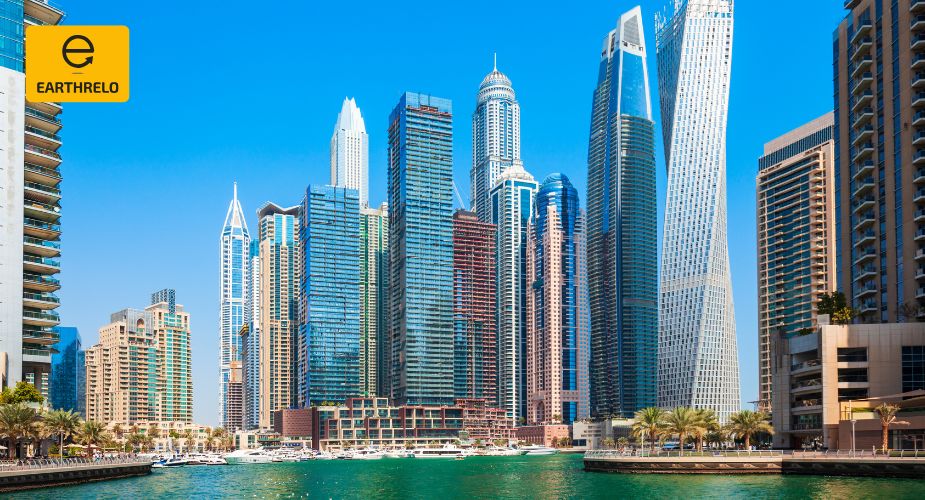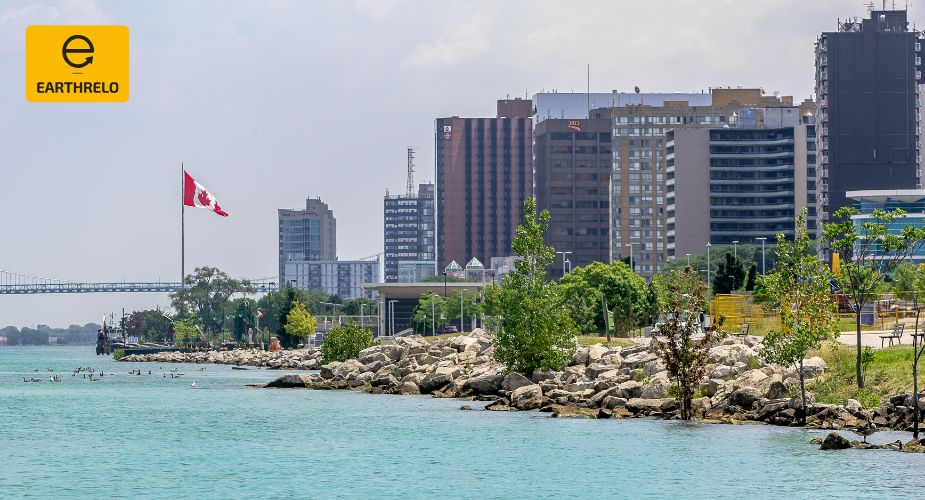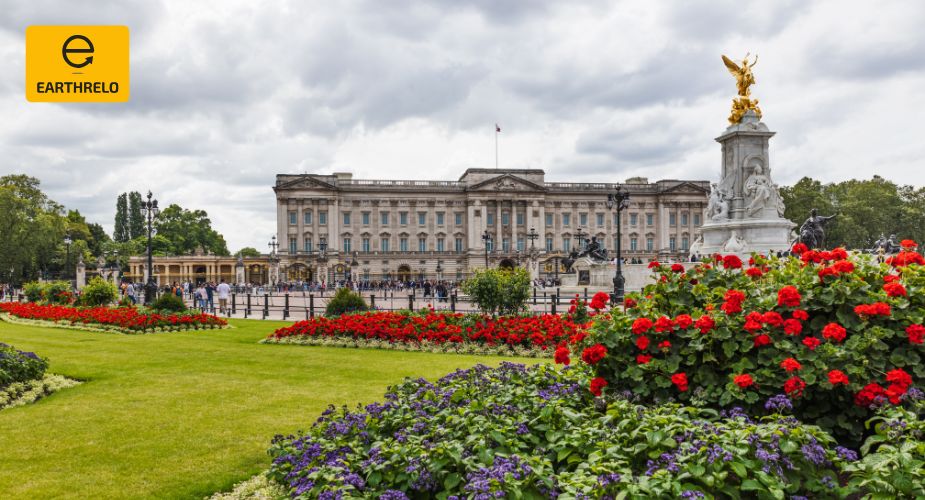- December 17, 2024
Brazil has long been a destination of interest for Americans looking to experience a vibrant culture, tropical climates, and a slower pace of life. Whether you’re drawn by the dynamic cities, pristine beaches, or the rich cultural traditions, moving to Brazil as an American promises an adventure like no other. But, like any major relocation, preparation is essential to ensure a smooth transition.
This guide explores critical aspects of relocating to Brazil, offering practical advice for everything from cultural adaptation to navigating daily life in a new country. Let’s dive in and discover what you can expect when starting this exciting journey.
Moving to Brazil as an American? Cost of Living in Brazil
The cost of living is one of the first things to consider when planning your move. While Brazil is generally more affordable than the United States, costs can vary significantly depending on your lifestyle and the region you choose to settle in.
Housing Costs
Housing expenses differ greatly between urban hubs and smaller towns. Cities like São Paulo and Rio de Janeiro are pricier, especially in affluent neighborhoods. Expect to pay higher rents for apartments in these areas. However, smaller towns and rural locations offer more budget-friendly options.
- Rental Costs: Monthly rent for a one-bedroom apartment in a city center can range from $300 to $800, depending on the location.
- Utilities: Electricity, water, and internet services typically add $100 to $150 per month to your expenses.
Daily Expenses
The cost of groceries and dining out is relatively affordable, making day-to-day living manageable. Fresh produce, local cuisine, and household items are often cheaper than in the U.S.
- Food: A meal at a mid-range restaurant costs around $10-$15.
- Transportation: Public transportation is inexpensive, with bus fares averaging $1 and metro rides around $1.50.
Regional Variations
Living costs can vary widely between regions. Northern and northeastern states tend to be more affordable, while southeastern regions have higher expenses due to their economic prominence.
Cultural Adaptation
Moving to Brazil as an American means immersing yourself in a culture that values community, celebration, and a laid-back attitude. Understanding and respecting local customs is key to settling in smoothly.
Embracing Brazilian Lifestyle
Brazilian culture is deeply rooted in family, friendships, and festivities. People here are warm, welcoming, and social. Participating in events like Carnaval or weekend churrascos (barbecues) is a great way to connect with locals.
Language and Communication
Portuguese is Brazil’s official language, and while English is spoken in some tourist areas, it’s not common in everyday settings. Learning basic Portuguese phrases will make daily life easier and help you build connections with your new community.
- Tip: Enroll in a language class or use language apps to build your skills before moving.
Customs and Etiquette
Understanding Brazilian customs is vital. For example:
- Personal space is smaller than in the U.S., and greetings often include handshakes, hugs, or kisses on the cheek.
- Punctuality isn’t as rigid; being slightly late is often acceptable.
- Respect for elders and a relaxed approach to time are cultural norms.
Healthcare System
Healthcare is a crucial consideration for anyone relocating abroad. Brazil offers both public and private healthcare systems, each with its own benefits and limitations.
Moving to Brazil?
Contact Us TodayPublic Healthcare System
Brazil’s public healthcare system, known as Sistema Único de Saúde (SUS), is free for residents, including expatriates. However, public hospitals often face issues like long wait times and limited resources.
- Key Features: Access to free consultations, treatments, and medications.
- Challenges: Quality can vary, especially in rural areas.
Private Healthcare Options
Many Americans moving to Brazil prefer private healthcare for its shorter wait times and higher-quality services. Private health insurance plans offer access to top-tier hospitals and specialists.
- Costs: Monthly premiums for private insurance range from $50 to $300, depending on coverage.
- Benefits: Expedited appointments, personalized care, and access to English-speaking doctors in major cities.
Preparing for Healthcare Needs
Before moving, ensure your vaccinations are up to date and research healthcare providers in your area. It’s also wise to purchase a comprehensive health insurance plan for peace of mind.
Education Opportunities
If you’re moving to Brazil as an American with family, understanding the education system is essential. Brazil offers a variety of schooling options, catering to both local and expatriate communities. From public schools to international institutions, there’s something for every need.
Schooling for Children
Public schools in Brazil are free but may not meet the expectations of many expatriates due to larger class sizes and limited resources. For higher-quality education, private and international schools are preferred.
- Private Schools: These schools offer a more structured curriculum and better facilities, with costs ranging from $500 to $2,000 per month, depending on the institution.
- International Schools: Ideal for expatriates, these schools provide bilingual or English-only education and often follow the American or British curriculum.
Higher Education
Brazil has prestigious universities that attract students from around the world. Public universities are highly regarded and free for residents, but competition is fierce. Private universities are also available and typically have lower admission requirements.
- Popular Fields of Study: Engineering, environmental sciences, and business management are common choices among international students.
- Language Requirement: Most universities teach in Portuguese, so proficiency is necessary for academic success.
Language Considerations
For families and students, learning Portuguese is a priority. Schools and universities may offer support for non-native speakers, but basic knowledge of the language can significantly ease the transition.
Employment Landscape
For many, employment opportunities are a key factor in moving to Brazil as an American. While Brazil’s job market can be challenging, there are sectors where foreign expertise is highly valued.
Popular Job Sectors
Certain industries in Brazil actively seek skilled expatriates, particularly in roles that require international knowledge or specialized skills.
- Technology: Brazil’s growing tech industry offers roles in software development, IT, and artificial intelligence.
- Energy: The country’s robust oil, gas, and renewable energy sectors are always in need of skilled professionals.
- Education: Opportunities exist for teaching English or working in international schools.
Networking and Job Search
Building a professional network is essential when job hunting in Brazil. Joining local business groups, attending networking events, and using online platforms can open doors to opportunities.
- Work Permits: Ensure your employer assists with the proper documentation, as a valid work visa is required to legally work in Brazil.
Entrepreneurship in Brazil
Brazil also encourages entrepreneurial ventures. Starting a business can be a viable option for Americans with innovative ideas or those looking to invest.
- Challenges: Familiarize yourself with Brazil’s bureaucratic processes, which can be complex.
- Opportunities: Small businesses in tourism, food, and technology often thrive.
Housing and Accommodation
Finding the right place to live is a major part of moving to Brazil as an American. Whether you’re looking to rent or buy, the housing market offers diverse options to suit various preferences and budgets.
Renting a Home
Renting is the most common choice for newcomers, offering flexibility while you settle in.
- Types of Rentals: Options range from city-center apartments to suburban houses. Gated communities are popular for their added security.
- Costs: Rent prices vary by region. A one-bedroom apartment in a city center can cost $300 to $800 per month, while larger homes in suburban areas may range from $500 to $1,500.
Buying Property
If you plan to stay long-term, purchasing property might be worth considering. Foreigners can legally buy real estate in Brazil, though the process can be intricate.
- Key Considerations: Work with a reliable real estate agent to navigate local regulations and avoid scams.
- Popular Locations: São Paulo, Rio de Janeiro, and Florianópolis are popular among expatriates due to their amenities and vibrant communities.
Choosing the Right Neighborhood
When selecting a neighborhood, safety, proximity to work or schools, and access to amenities are crucial factors.
- Urban vs. Rural: Urban areas offer convenience and modern infrastructure, while rural towns provide tranquility and a lower cost of living.
- Transportation Access: Look for housing near public transportation options if you don’t plan to own a car.
Transportation and Infrastructure
Getting around efficiently is an important aspect of daily life when moving to Brazil as an American. Understanding the transportation options and the quality of infrastructure will help you plan for commuting and travel within the country.
Public Transportation
Brazil’s public transportation system is extensive and affordable, especially in major cities.
- Buses: Available in urban and rural areas, buses are the most common mode of transportation. Fares typically cost around $1 per ride.
- Metro Systems: Cities like São Paulo and Rio de Janeiro offer reliable metro services. These are faster than buses and ideal for navigating congested areas.
- Taxis and Ride-Sharing: Taxis are readily available, but ride-sharing apps have become more popular for convenience and cost-effectiveness.
Driving in Brazil
For those who prefer private transportation, owning a car is an option.
- Driver’s License: Americans can use their U.S. license for up to 180 days with an International Driving Permit (IDP). After this period, you’ll need a Brazilian driver’s license.
- Road Conditions: Major highways are well-maintained, but rural roads may be less reliable. Traffic in big cities can be challenging, particularly during rush hours.
Infrastructure Quality
Brazil’s infrastructure varies by region. Urban areas generally have well-developed roads, airports, and public facilities. In contrast, rural regions may lack the same level of development.
- Airports: Brazil boasts numerous international and domestic airports, making air travel convenient for long-distance trips.
- Utilities: Electricity, water, and internet services are generally reliable in cities but may be inconsistent in remote areas.
Safety and Security
Safety is often a concern for anyone moving to Brazil as an American. While the country has a reputation for crime in some areas, understanding the safety landscape and taking precautions can significantly enhance your experience.
Regional Safety Variations
Safety levels vary widely across Brazil. Urban areas like São Paulo and Rio de Janeiro have neighborhoods that are safer than others.
- High-Risk Areas: Some favelas (informal settlements) may be unsafe for newcomers and should be avoided.
- Low-Crime Areas: Suburban neighborhoods and smaller towns typically have lower crime rates.
Tips for Staying Safe
Adopting smart practices can help you avoid potential risks.
- Avoid Flashy Displays: Refrain from wearing expensive jewelry or using high-end electronics in public spaces.
- Be Cautious at Night: Stick to well-lit and busy areas after dark, especially if you’re unfamiliar with your surroundings.
- Know Emergency Numbers: Keep local police and emergency contacts handy.
Understanding Local Laws
Familiarize yourself with Brazilian laws and regulations. Respect for local rules and customs will help you avoid misunderstandings or legal issues.
Social Integration
One of the most exciting aspects of moving to Brazil as an American is the opportunity to connect with a new culture and build a social network. Brazilians are known for their warmth and hospitality, making it easier to establish friendships and feel at home.
Building a Social Network
Participating in social activities is a great way to meet people and integrate into the community.
- Community Events: Attending local festivals, markets, and cultural events is a fantastic way to connect with neighbors and learn about Brazilian traditions.
- Expatriate Groups: Many cities have communities of expatriates who organize meetups, offering support and camaraderie.
Volunteering and Community Involvement
Volunteering can provide a meaningful way to immerse yourself in Brazilian society. From teaching English to participating in environmental projects, there are many opportunities to give back while building relationships.
Navigating Social Norms
Understanding social customs will help you communicate effectively and avoid cultural missteps.
- Greetings: Brazilians value personal connections, so expect handshakes, hugs, or cheek kisses depending on the situation.
- Dining Etiquette: Meals are often communal and relaxed, with an emphasis on sharing and conversation.
Also Read: Relocating to Brazil – A Comprehensive Service Guide
Financial Considerations
When moving to Brazil as an American, managing your finances effectively is essential. From banking options to taxes, understanding how to handle your money in a new country will ensure a smoother adjustment.
Banking Options
Opening a local bank account is recommended for day-to-day transactions and bill payments. Brazil has a robust banking system with both public and private institutions.
- Documents Needed: To open an account, you’ll typically need a CPF (Brazilian tax ID), proof of residence, and a valid passport.
- Account Types: Savings and checking accounts are the most common, and many banks offer online banking services.
Currency Exchange and Transactions
The Brazilian real (BRL) is the official currency. Exchange rates fluctuate, so it’s wise to monitor rates when converting funds.
- Cash and Cards: Debit and credit cards are widely accepted, but having cash on hand is useful for smaller establishments and markets.
- Remittance Services: If you need to transfer money between Brazil and the U.S., explore options that offer favorable exchange rates and low fees.
Tax Obligations
Americans living abroad must consider their tax responsibilities in both countries.
- U.S. Taxes: As a U.S. citizen, you must file annual tax returns with the IRS regardless of your residence.
Brazilian Taxes: If you earn income in Brazil, you may be subject to local taxes. Consulting a tax professional can help you navigate dual obligations.
Wrapping Up
Moving to Brazil as an American is a significant life change, filled with opportunities to explore a vibrant culture and new experiences. By understanding the financial system, planning your relocation thoroughly, and embracing Brazilian customs, you can ensure a smooth transition to your new home.
This journey is about more than just logistics—it’s an opportunity to immerse yourself in a unique way of life. With careful preparation and an open mind, you can thrive in Brazil and enjoy everything this beautiful country has to offer.
Also Read: Planning a Piano Move to Brazil from US?





